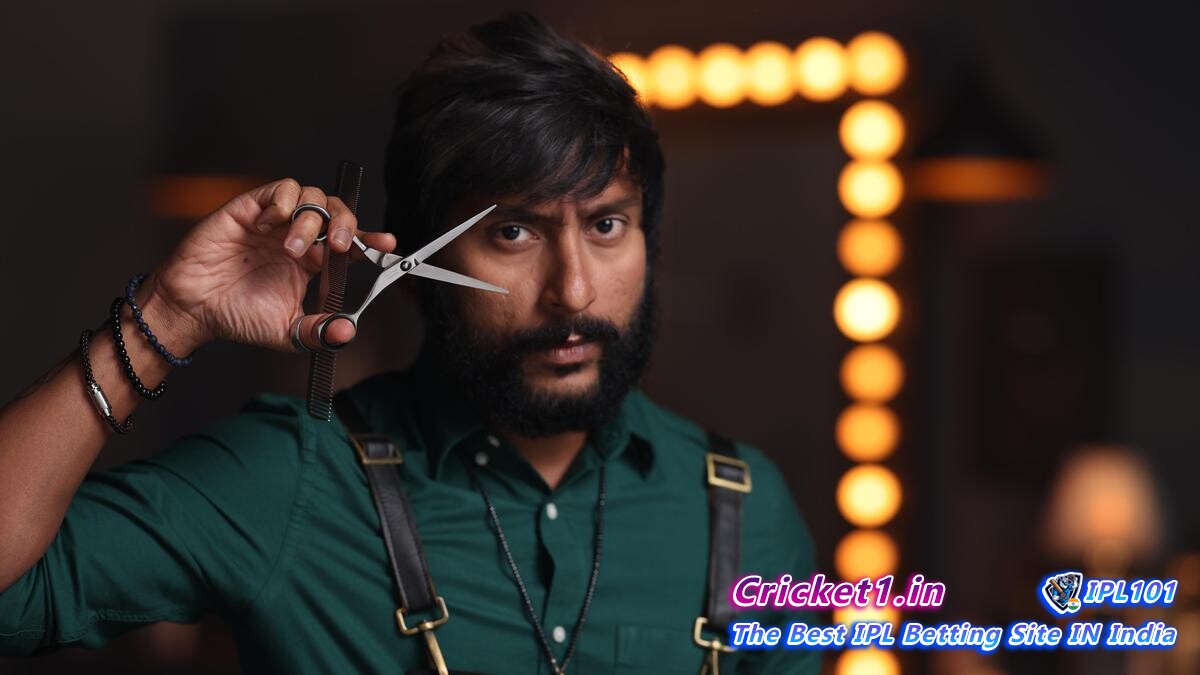
A practice prevalent in Indian cinema, the act of inserting an intermission, cleaves movies into two distinct segments. Unlike Hollywood films, the Indian storytelling tradition aims at a smooth coalescence of these parts. However, not all films navigate this junction with grace, as evidenced by ‘Singapore Saloon’, a film that juggles comedy and chaos to a bewildering effect. The RJ Balaji-fronted project commences with an absurd yet laugh-inducing beginning, only to stumble into a convoluted and preachy latter half.
RJ Balaji’s portrayal of Kathir in ‘Singapore Saloon’ typically mirrors his off-screen persona, rendering an affable onscreen presence. In the narrative, Kathir defies societal expectations by embracing his aspiration of becoming a hairstylist, achieving self-reliance before calamity befalls him. His odyssey from an underdog to a triumphant individual forms the crux of the story, with his initial ascent peppered with engaging sequences.
The director, Gokul, thrives in the comedy genre, and this strength is palpable in the film’s first half. Flashbacks of Kathir’s childhood, featuring comical kinships and a motivating figure in Chacha (played by Lal), lay a compelling foundation. The plot accelerates with Kathir’s interaction with his wife’s family, predominantly his miserly father-in-law and eccentric brother-in-law, roles inhabited commendably by Sathyaraj and Robo Shankar. They are crucial to the uproarious ensembles that rank amongst the freshest comedic gems of Tamil cinema, reminiscent of the laughter evoked by previous films like ‘Love Today’. Alas, as the story progresses past the intermission, this effervescent duo, along with the humor they bring, dissipates in the wake of a somber narrative turn.
The storyline takes a tumble with an abrupt disaster, serving as a metaphor for the film’s trajectory. What ensues is akin to a mosaic of unrelated notions, each clumsily patched to form a barely coherent narrative. The plot borrows liberally from an eclectic mix of cinema, echoing elements from ‘Seedan’, ‘Arai En 305-il Kadavul’, ‘Maaveeran’, ‘Lakshmi’, and even ‘2.0’. Ambitious to a fault, it concocts a glut of cameos and subplots that seem both contrived and all too familiar. Simplistic solutions like a superficial makeover to clinch a dance contest slot or an environmental subplot featuring parrots dispossessed of their habitat add to the disarray.
Intriguingly, RJ Balaji’s pivotal character, in attempting subtlety, renders him a passive observer of the tumultuous events rather than an active participant. His victories, when they finally occur, are devoid of the resonance a protagonist’s triumphs should evoke. Compounding these issues is the film’s lack of nuanced female roles, a common criticism of the genre.
Reflecting on the success of ‘Idharkuthane Aasaipattai Balakumara’, it’s apparent that exaggerated characters with room for exploration can be successful. The first half of ‘Singapore Saloon’ promised a similar dynamic but ultimately fails to sustain it throughout. What remains is a dramatic narrative struggling to recognize and capitalize on its inherent strengths.
As it stands, ‘Singapore Saloon’ is playing in theaters, offering viewers an experience that is part spellbinding hilarity and part jumbled admonishment. Yet, this dichotomy of tone collides rather than complements, leaving behind the echoes of what might have been had the narrative chosen a path less convoluted.

